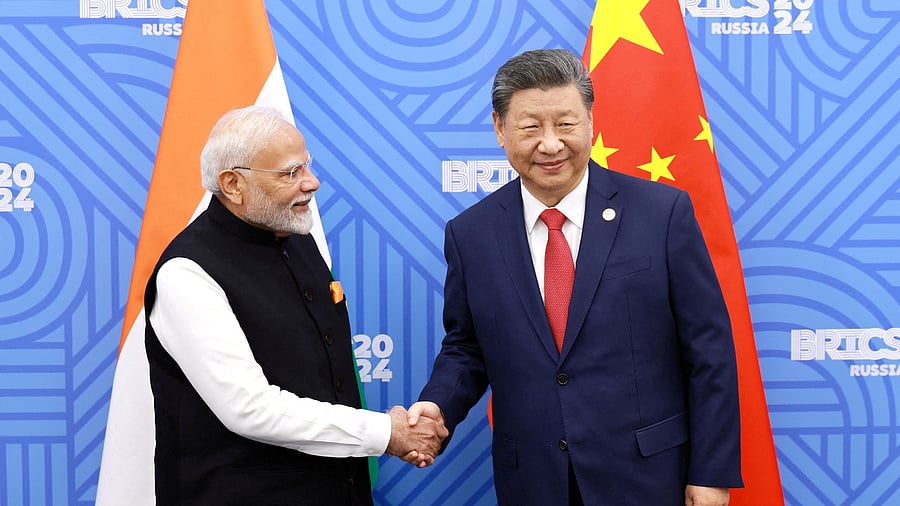
Chinese President Xi Jinping and India Prime Minister Narendra Modi
Credit: Reuters File Photo
New Delhi: India doesn’t believe in expansionism, Prime Minister Narendra Modi said on Monday, subtly sending out a message to China, even as the communist country lauded his positive comments about bilateral relations during an interview with United States podcaster Lex Fridman.
“We believe in the policy of development, not in expansionism,” Modi said after a meeting with New Zealand Prime Minister Christopher Luxon in New Delhi. “India and New Zealand support a free, open, secure, and prosperous Indo-Pacific.”
A joint statement issued after the meeting between the two leaders stressed upholding a rules-based international order in the Indo-Pacific, where China’s expansionist moves have triggered concerns not only for its maritime neighbors but also for the rest of the world.
Luxon said that he and Modi discussed the challenging strategic outlook in the Indo-Pacific. “I reiterated our strong commitment to address shared concerns over our respective interests in contributing to a prosperous Indo-Pacific,” said the New Zealand prime minister.
The two prime ministers reaffirmed the right to freedom of navigation and overflight and other lawful uses of the seas in accordance with international law, particularly the 1982 United Nations Convention on the Law of the Sea (UNCLOS). They reaffirmed the need to pursue the peaceful resolution of disputes in accordance with international law, particularly UNCLOS.
The South China Sea is a major waterway, and the sea lanes in this region account for over US $3.25 trillion of international trade. It has been at the center of a territorial conflict between China and its maritime neighbors, such as Vietnam, Brunei, Malaysia, and the Philippines. An Arbitral Tribunal constituted under UNCLOS 1982 delivered a unanimous decision in 2016 rejecting China’s expansive claims on the South China Sea. China, however, steadfastly refused to adhere to it.
Modi joined Luxon in sending out a message to Beijing just a day after he was heard telling Lex Fridman during a podcast that India wanted dialogue, not discord, with China and that the two nations could build a stable and cooperative relationship only through dialogue. He acknowledged that China’s moves along its disputed boundary with India in April-May 2020 had triggered significant tension but added that after his recent meeting with Chinese President Xi Jinping, normalcy had started returning along the Line of Actual Control.
China on Monday appreciated the positive remarks made by the prime minister of India about bilateral relations. “Being partners in mutual achievement and realizing a cooperative pas de deux of the dragon and the elephant is the only right choice for China and India. China is willing to work with India to fully implement the consensus reached by their leaders and take the 75th anniversary of the establishment of diplomatic ties as an opportunity to promote the healthy and stable development of China-India relations,” Mao Ning, a spokesperson for the Ministry of Foreign Affairs of the communist country’s government, said in Beijing.
Modi and Xi Jinping held a bilateral meeting on the sidelines of the BRICS summit in Kazan, Russia, on October 23, 2024. The meeting was the first between the two in five years and followed an agreement between the two sides on the arrangement of patrolling by the Indian Army and the Chinese PLA in Depsang and Demchok areas—the last two remaining stand-off points along the LAC.
The disengagement of the Indian and Chinese troops in Depsang and Demchok marked the end of the stand-off, which had started in April-May 2020 when the Chinese PLA deployed a large number of soldiers in an aggressive move to push the LAC westward, and the Indian Army counter-deployed additional troops. Relations between the two nations nosedived during the stand-off, which continued for almost five years.
